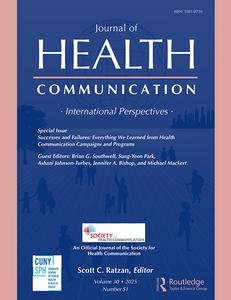The questions of whether the nation has entered a recession was a point of debate at a key economic summit in Marin this week.
“There’s very little doubt that we are in a Trump recession, almost entirely self-inflicted, pretty different than almost any recession I can remember in my lifetime,” Rep. Jared Huffman told an estimated 300 people who attended a San Rafael Chamber of Commerce economic forecast event on Thursday.
Christopher Thornberg, founder of Beacon Economics, a Los Angeles economic research firm, who delivered the keynote speech, said, “By the way, we’re not in a recession. Listen, recessions take a long time to kick in, and household finances are still strong. So we’re not there yet.”
Huffman, seated nearby, could be heard responding. “I disagree,” he said.
The event, underwritten by Bank of America, Sutter Health and Redwood Credit Union, was billed as an 2025 economic forecast, but Huffman and Thornberg also offered dueling interpretations of where the economy has been in recent months.
Huffman recounted the Biden administration’s handling of the economy during the COVID-19 pandemic, “to literally lift the American economy out of the ditch, to spare us from perhaps even a global depression, and to set us on the road to recovery.”
The Biden administration’s efforts included the $1.9 trillion American Rescue Plan Act.
“We followed that up with the Inflation Reduction Act,” Huffman said, “which was the biggest package of climate actions the country has ever seen.”
Thornberg said, “I’m a student of business cycles. Pandemics do not cause depressions.”
He said there is no mystery to why inflation shot up following the pandemic.
“Congress deployed $6 trillion of stimulus funded by $5 trillion of quantitative easing courtesy of the Federal Reserve,” he said. “Inflation is a consequence of too much money chasing too few goods.”
Thornberg, who received a doctorate in business economics from the University of California, Los Angeles, said he has learned that to make accurate economic forecasts it is necessary to factor in the false narratives that influence many people’s decisions. He said that instead of worrying about an immediate recession, people should be concerned about the long-term consequences of the nation’s massive deficit spending.
“The deficit is enormous at this point in time, 6% of gross domestic product,” Thornberg said. “We’ve never seen anything quite like this.”
He said the private-sector debt crisis that sparked the Great Recession has been converted into a public-sector debt crisis.
“We’re incredibly reliant on foreign capital flows,” Thornberg said. “In the last 20 years, we’ve borrowed $25 trillion from the rest of the world. Wow, they’re going to be really disappointed when they can’t collect. At some point in time, there’s going to have to be a reckoning.”
In the meantime, Thornberg said, the biggest impediments to growth in Marin County and the state in general are shortages of housing and workers, and he said the housing shortage is making the labor shortage worse. He said Texas’ labor force is growing much faster than California’s.
“The reason is very simple,” he said, “They build housing, and we don’t.”
Not only is labor supply growth in Marin and much of the state not keeping pace, but the population is aging, which means there are fewer people available to the workforce.
Thornberg said another popular false narrative is that affordable housing should be emphasized when addressing the housing shortage.
“Developers don’t build affordable housing. That is not how it works,” he said. “The margins are on building nice housing.”
Thornberg said that typically market-rate housing becomes affordable as it ages and its owners move on to newer homes. He added, however, that there is a problem now because many homeowners with low-interest-rate mortgages are loath to sell their homes and buy new ones at higher rates.
Following Thornberg’s talk, a panel discussion addressed Marin County’s efforts to stimulate housing production.
Panel member Jennifer Silva, chair of the Marin Environmental Housing Collaborative, said, “It’s true that we are proposing more projects than we have in a very long time, and many have been approved.”
She added, however, “Very little is actually under construction.”
Panel member Tom Monahan, president of Monahan Pacific, a Marin real estate firm, said many projects have been stymied by high interest rates and increased costs for labor and materials. Monahan said that because some 85% of the county’s land has been protected from development through open space purchases, developers need to build taller and taller buildings.
“There is nowhere else to put it,” he said.
The breakfast was the largest meeting of local business leaders since the Marin Economic Forum, a government and business collaboration created to foster economic growth in the county, ceased operations in December. A year earlier, Marin County hired its own economic vitality coordinator and reduced its support of the forum.
Speaking at the event Thursday, Marin County Executive Derek Johnson said county supervisors had recently elevated “community/economic vitality” to be one of their top priorities.
“With that focus comes a long-overdue initiative: the development of Marin’s first economic development strategic plan,” Johnson said. “So here’s my ask: Be part of this, be part of the development of the economic development strategic plan.”





